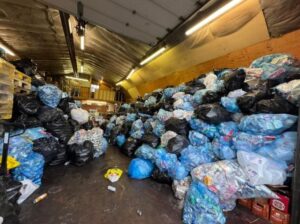By Laura Bohnert
The oil and gas industry in Alberta is celebrating a small success following the federal approval of two new pipeline projects.
Plans for the Trans Mountain and Line 3 Pipelines have been approved by the Trudeau government, and the potential those projects introduce into Alberta’s industries carries a lot of weight in an economy that has been at a near standstill since the drop in oil prices sparked the start of the 2014 recession.
The proposal for the Line 3 pipeline project include a rebuild of the current pipeline that will increase production capacity to the U.S. The Trans Mountain pipeline will increase Canadian oil capacity to the Pacific markets. Both projects mean upping Canada’s production capacity, and that could mean Canadian oil companies could be gaining access to better oil prices, which could bring about a long needed end to Alberta’s recession.
However, the approval of the Trans Mountain and Line 3 pipelines also came with a few rejections, and those rejections reinforce the Trudeau government’s dedication to the Alberta climate change plan.
The Northern Gateway pipeline, for instance, was rejected, and that has left a few in the industry more than a little hesitant to get too happy about the new approvals. While they do carry potential, many impending projects, like the Keystone XL pipeline to the U.S. or the Energy East pipeline to Canada’s east coast, are considered to be far more impacting when it comes to connecting Canada to international oil markets.
On the other hand, while those in the oil and gas industry are concerned that these two new approvals won’t mean enough progress for Alberta’s economy, others are concerned that these approvals, despite the fact that they rigidly align with the Alberta climate change plan, mark the Trudeau government’s shift away from campaign promises to strengthen environmental policies.
In other words, the Trudeau government is at the crux of a division when it comes to the pipelines, but which direction marks true progress for Alberta—its environment as well as its oil and gas economy?
On the one hand, strengthening environmental policies could mean strengthening relations with Canada’s First Nations. It could also mean investing in an up and coming sect of the economy—green industry—which presents a more sustainable and knowledge-based resource for a more stable market. On the other hand, Alberta’s economy is oil and gas-centric, which means any potential for investments right now require a foundation in an economy that isn’t at a recession-based standstill. In other words, the oil and gas industry needs to get moving again before the economy can begin to re-shape itself.
The true complication involves moving our economy in a direction that will also push it towards that sustainable economic restructuring instead of allowing it to repeat a branch-plant pattern that will inevitably bring it back to recession the next time oil and gas prices drop.







More Stories
Whitecourt Minor Ball hits a home run with bottle drive
Rising tariffs, skyrocketing duties and an Albertan forestry industry in need of support at home